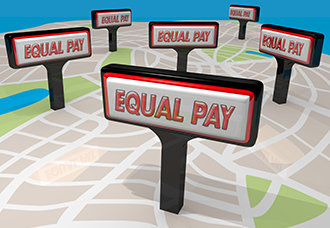
Don’t Ask About Prior Salary When Hiring
by Matt Clune
According to the Ninth Circuit Court of Appeals, employers across the country would be wise to discontinue asking potential new employees their prior wage. In Rizo v. Yovino, 887 F.3d 453 (9th Cir. 2018), the Court recently ruled that employers can no longer use an employee's prior salary, alone or in combination with other factors, to justify payment of a lower wage when determining starting salary. To hold otherwise, the court concluded, would be contrary to the Equal Pay Act (EPA).
Countless studies have been done on the gender pay gap, and many have come up with somewhat differing numbers. However, no matter how you slice it, men generally get paid more than women for the same work. In 2017, women were paid 82 cents of every dollar according to a Pew Research Center analysis. According to the U.S. Census Bureau, women were paid about 80 cents for every dollar paid to men in 2016. Younger women, ages 25-34, actually fare better, making about 89 cents for every dollar paid to their male counterparts. There are various reasons for this recurring problem, but the one to which Rizo speaks is the problem of companies who determine starting salaries based, in whole or in part, on the applicant’s prior salary. If the new employee is a female whose prior salary was already too low, the hiring company may be perpetuating the gender pay gap.
Several states and municipalities, some before Rizo, have enacted statutes and regulations which prohibit employers from requesting prior salary or wage information. States and cities which have passed such legislation, or are in the process of doing so, include California, Delaware, Oregon, Massachusetts, New York City, Philadelphia, Pittsburgh, and New Orleans. Some of these efforts currently face legal challenges and are not yet in force. Critics of the Rizo decision and this type of legislation say that it goes too far because it holds that even an employer that uses prior salary in combination with a number of other factors is still violating the Equal Pay Act. Further, they argue that such holdings and statutes are unfair because there is often no evidence that the prior salary was inadequate.
The Rizo decision is binding in the Ninth Circuit, which includes Alaska, Arizona, California, Hawaii, Idaho, Montana, Nevada, Oregon, and Washington state. However, many companies continue to ask for and use this information, and many courts, in contrast to the Ninth Circuit, have upheld this practice as perfectly legal. The Seventh Circuit, in particular, has repeatedly held that a hiring employer who determines salary based on prior pay is protected from any alleged violation of the Equal Pay Act because it is a “factor other than sex.” The Seventh Circuit includes Illinois, Indiana, and Wisconsin.
This split between the Ninth and the Seventh circuits could mean a showdown in the U.S. Supreme Court, which may provide clear guidance for employers throughout the country. However, until that occurs, an employer’s best practice is to check with counsel to determine if any “no ask” statutes are in effect in their area. When in doubt, don’t ask for prior pay and don’t use it in determining starting salary.